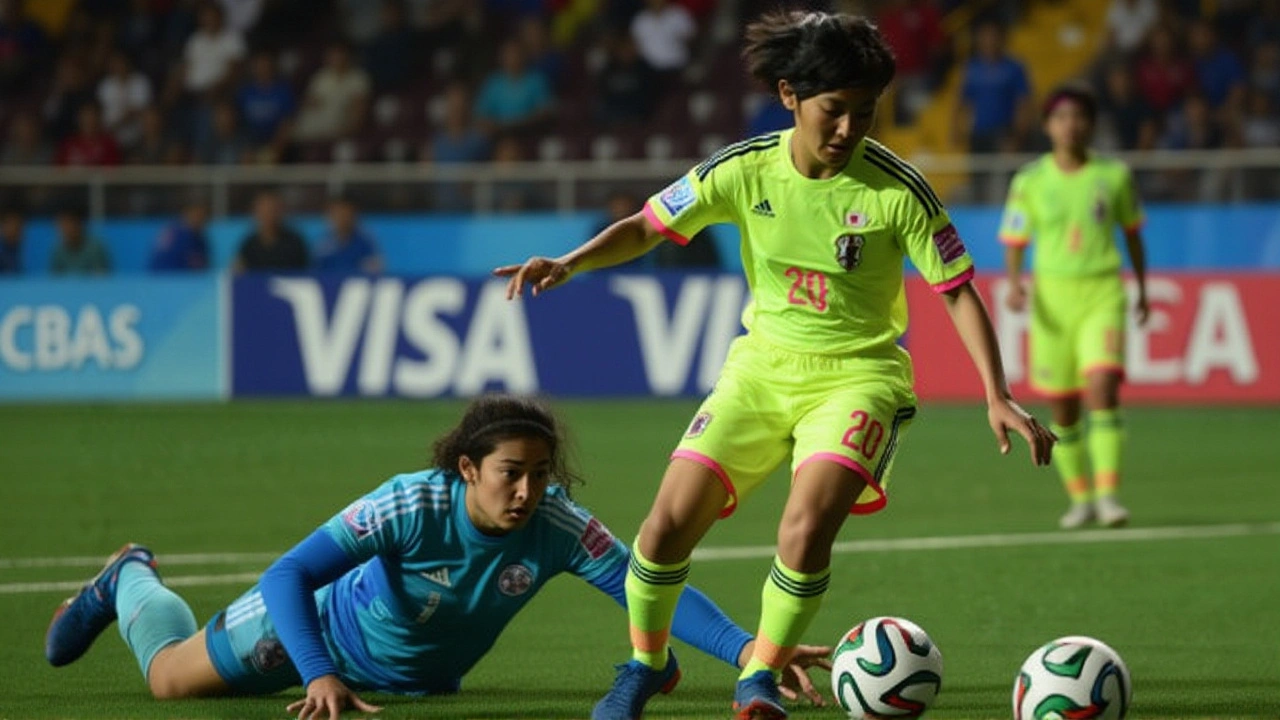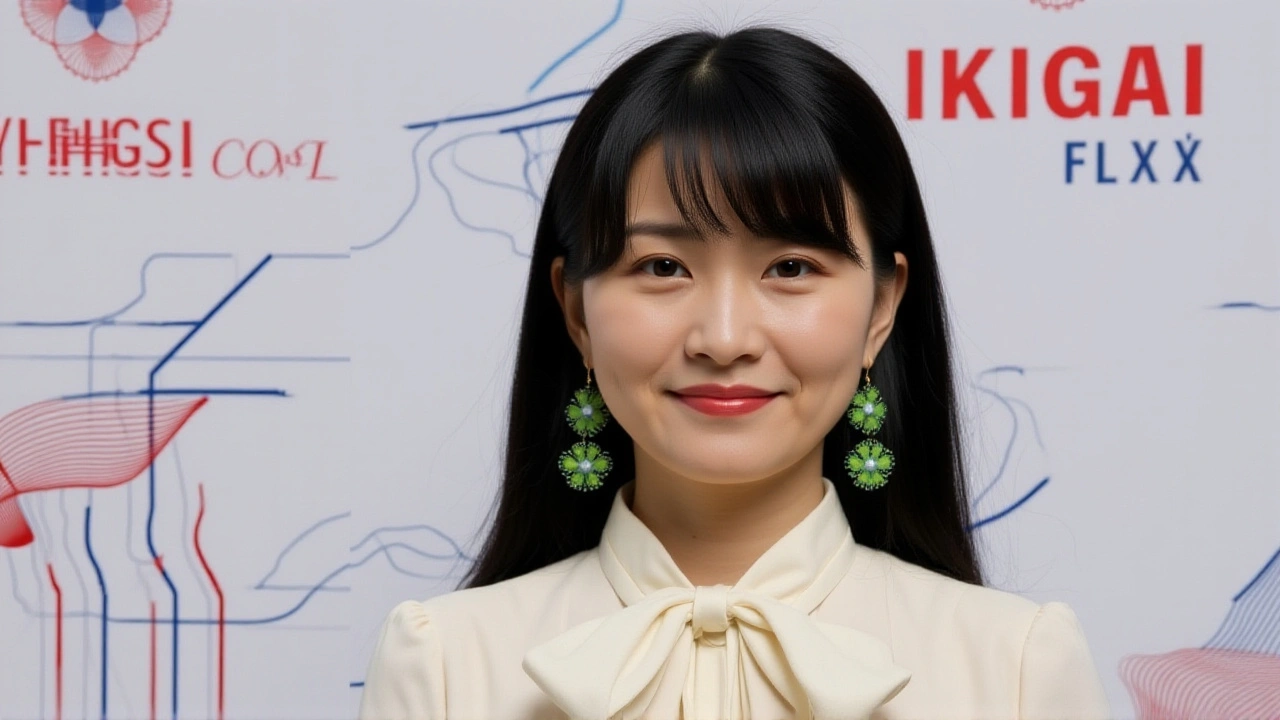When Yoko Fujikake, Dean of the College of Urban Science at Yokohama National University stood on the stage in Osaka on May 22, 2025, the crowd’s cheers felt like a heartbeat for three decades of Paraguay‑Japan cooperation. The celebration marked Paraguay’s National Day, and Fujikake used the moment to spotlight the schools she helped build, the women’s cooperatives she nurtured, and the student exchanges that keep the partnership alive.
A Day of Celebration and Reflection
The event, officially Paraguay National Day CelebrationOsaka, Japan, drew over a thousand visitors, from Japanese locals curious about South‑American culture to Paraguayan expatriates waving the red‑white‑blue flag. "I am thrilled and excited because today is the day to celebrate Paraguay’s National Day, and so many people are coming," Fujikake told Agencia IP, her smile widening as she watched a group of students from her university file in.
Even the President of Paraguay, Santiago Peña, and First Lady Leticia Ocampos stopped by Fujikake’s booth, exchanging warm greetings that reminded her of a visit last year when one of her students presented a hand‑woven ñandutí lace to the presidential palace.
Three Decades of On‑the‑Ground Work
Fujikake’s journey began as a JICA volunteer—she was part of the Japan International Cooperation Agency overseas program that sent young professionals to rural South America. While records disagree on the exact year—some say January 1993, others argue January 1994—the impact is crystal clear. She spent her first stint in Coronel Oviedo, working alongside the Paraguayan Ministry of Agriculture to empower women farmers.
Since then, she has overseen the construction of four schools in Coronel Oviedo and San Juan, launched agrotourism projects that turn coffee farms into learning hubs, and steered income‑generation programs for single mothers in Bañado Sur. "These initiatives aren’t just bricks and mortar; they’re pathways to dignity," she said during the Osaka ceremony.
Her leadership of the Mita'i—Mitakuña'i Foundation has amplified those efforts, connecting Japanese donors with Paraguayan artisans. The foundation recently secured a grant to train 120 new lace makers, aiming to double the production of traditional ñandutí within two years.
Voices on the Impact
Paraguayan Ambassador to Japan, Raúl Florentín, praised Fujikake in The Japan Times: "Paraguay promotes numerous initiatives for rural women, and the inspiring actions of Yoko Fujikake deserve a special highlight in this effort."
Students who travelled with her in 2024 echoed that sentiment. "Seeing the school we helped build still buzzing with children reminded me why community‑based research matters," said Maya Tanaka, a fourth‑year anthropology major.
Even critics note the challenges. A local NGO in San Juan pointed out that while infrastructure has improved, long‑term funding remains uncertain. Fujikake acknowledged the gap, noting that her foundation is currently negotiating a three‑year partnership with a European development agency to sustain the projects.

Looking Ahead: New Projects and Student Exchanges
Next spring, Fujikake plans to launch an agrotourism circuit that links Coronel Oviedo with La Colmena, offering immersive farm stays for Japanese university groups. The pilot will involve 30 students and aims to generate $1.2 million in local revenue by 2027.
Back at Yokohama National University, she is redesigning the "research‑action" curriculum so that each cohort works on a live Paraguayan community project. "It’s a two‑way street; our students learn, but the villages also gain fresh perspectives," she explained.
Historical Roots of Japan‑Paruguay Cooperation
Diplomatic ties between Japan and Paraguay stretch back to 1919, when the two nations signed their first treaty of friendship. Over the last century, cooperation has oscillated between trade—especially soy and beef—and cultural exchange. Fujikake’s story is a vivid illustration of the soft‑power strand: anthropology, gender studies, and grassroots development weaving together to strengthen bilateral goodwill.
According to the Ministry of Foreign Affairs of Japan’s 2017 Country Assistance Evaluation, Japan has funneled roughly $150 million into Paraguayan development programs since the 1990s. Fujikake’s role as adviser to the Paraguayan president and as a professor of graduate programs underscores how individual expertise can amplify state‑level assistance.
- Key Fact: Four schools in Coronel Oviedo and San Juan were completed under Fujikake’s guidance.
- Over 30 years, her projects have supported more than 12,000 women entrepreneurs.
- JICA’s President’s Award recognized her in 2018 for outstanding volunteer service.
- She was named one of Newsweek Japan’s "100 Japanese Admirable People in the World" in 2021.
Frequently Asked Questions
How does Fujikake’s work affect Paraguayan women?
Her programs provide micro‑loans, skill‑training in textile arts, and market access through fair‑trade networks, helping roughly 4,200 women increase their household income by an average of 35 %.
What led to Fujikake’s involvement with Paraguay?
She arrived as a JICA overseas volunteer in the early 1990s, assigned to the Ministry of Agriculture’s Extension Service in Coronel Oviedo, where she first saw the potential of community‑driven development.
Who are the primary partners in her current projects?
The Mita'i—Mitakuña'i Foundation, JICA, the Paraguayan Ministry of Agriculture, local NGOs in Bañado Sur, and several Japanese university departments collaborate on education, agrotourism, and lace‑making initiatives.
What are the next steps for student exchange programs?
Starting in the 2026 academic year, Yokohama National University will send two cohorts of 30 students each to Paraguay for semester‑long field projects, while Paraguayan students will study urban planning in Japan under a scholarship funded by the foundation.
How does this story illustrate the wider Japan‑Paraguay relationship?
Beyond trade, the partnership thrives on cultural exchange and development aid. Fujikake’s three‑decade career shows how academic expertise can translate into tangible community benefits, reinforcing the diplomatic bond celebrated since 1919.

akshay sharma
October 10, 2025 AT 23:10Yoko Fujikake’s three‑decade saga reads like a textbook case of soft‑power imperialism masquerading as benevolence, and the Osaka gala merely gilds the narrative with applause. The JICA‑backed projects, while laudable on the surface, embed Japanese development models into Paraguayan soil, often sidelining local agency. One can trace the same top‑down approach from the early ’90s to the present, where donor priorities dictate community agendas. The veneer of women’s empowerment is a convenient PR angle that masks underlying dependency cycles. In sum, the celebration is a rehearsed affirmation of a geopolitical strategy veiled in altruism.
Anand mishra
October 15, 2025 AT 14:12Reading about Fujikake’s work reminds us how cross‑cultural bridges are built brick by brick, person by person, and the Osaka event illustrates that beautifully. As someone who constantly navigates the nuances of Indo‑Japanese collaborations, I see a parallel in how mutual respect fuels sustainable outcomes. The schools erected in Coronel Oviedo are not merely structures; they are incubators of shared knowledge that ripple across generations. Moreover, the agrotourism circuits foster a two‑way exchange, allowing Japanese students to experience Paraguayan agrarian life while Paraguayans gain exposure to Japanese technological practices. This reciprocity, anchored in genuine curiosity, is the cornerstone of long‑lasting partnership.
Prakhar Ojha
October 20, 2025 AT 02:27Fujikake’s bragging rights about “doubling ñandutí production” are nothing but a glittering headline for profit‑driven craft tourism. The narratives gloss over the exploitative labor underpaying artisans while feeding foreign markets. It’s a classic case of cultural commodification dressed up as empowerment.
Pawan Suryawanshi
October 24, 2025 AT 14:43Honestly, the whole thing feels like a blockbuster sequel where the hero never changes, just adds a flashier costume. The initiatives certainly bring some cash flow, yet the underlying power dynamics stay the same 🎭. Still, watching Paraguayan kids sprint through newly built classrooms does spark a tiny ember of hope 😊. Let’s hope the next chapter writes a script where locals call the shots.
Harman Vartej
October 29, 2025 AT 01:58Celebrations often hide the unfinished work.
Amar Rams
November 2, 2025 AT 14:14From a development economics lens, the Mita'i-Mitakuña'i Foundation operates as a hybrid public‑private conduit, leveraging quasi‑fiscal instruments to attenuate transaction costs in artisanal value chains. The scalability of micro‑loan disbursement hinges upon rigorous impact assessment frameworks and longitudinal data fidelity. Consequently, the marginal utility of these interventions must be iteratively calibrated against endogenous market fluctuations.
Rahul Sarker
November 7, 2025 AT 02:29While Japan flaunts its “soft power” in Paraguay, let’s not forget the strategic intent to secure agricultural commodities and geopolitical footholds in South America. The veneer of philanthropy cannot eclipse the underlying resource extraction agenda. Domestic stakeholders must scrutinize every foreign‑funded blueprint with a critical eye. Anything less is a surrender of sovereignty to external interests.
Sridhar Ilango
November 11, 2025 AT 14:44The Osaka ceremony was a kaleidoscope of flags, smiles, and overt optimism that could blind even the most jaded observer.
The hidden tapestry of bilateral negotiations dating back to 1919 is far from a simple friendship tale.
Fujikake’s thirty‑year odyssey mirrors the classic pattern of development aid that oscillates between genuine help and subtle dominance.
The construction of four schools, while commendable, rarely addresses systemic curriculum relevance in a globalizing world.
Agrotourism pilots promise $1.2 million in revenue yet risk commodifying rural lifestyles for tourists.
Micro‑loan mechanisms sound empowering, but interest structures often tether borrowers to debt cycles.
The partnership with a European agency injects capital but adds another layer of external oversight.
Each initiative functions like a gear in a machine aligning Paraguayan development with Japanese strategic interests.
President Santiago Peña’s presence adds legitimacy, signaling governmental endorsement of foreign‑driven agendas.
“Community‑based research matters” is sincere, yet outcomes are filtered through academic lenses prioritizing publication over praxis.
Ñandutí lace becomes a marketable artifact detached from cultural roots.
Japanese students gain exposure, but reciprocal benefit to Paraguayan students remains peripheral.
The diplomatic relationship, sustained since the early 20th century, evolves with soft‑power tactics.
Celebrating three decades should also entail critical reflection on who truly reaps long‑term rewards.
If stakeholders balance pride with introspection, the next chapter might indeed be written by the very communities that have carried this partnership for decades.
priyanka Prakash
November 16, 2025 AT 03:00The focus on infrastructure masks the precarious funding landscape that could leave these projects stranded. Persistent advocacy is essential to transform celebratory rhetoric into sustained impact. Only a transparent, community‑led roadmap will secure genuine progress.
anjaly raveendran
November 20, 2025 AT 15:15One cannot ignore the subtle power dynamics at play; the narrative frames Fujikake as a savior, yet the reality is a collaborative mosaic of local resilience and external support. The data on women’s income gains is encouraging, but the methodology behind the 35 % figure remains opaque. It is crucial to interrogate the sources, lest we accept polished statistics without scrutiny. A holistic appraisal demands both accolades and accountability.
Danwanti Khanna
November 25, 2025 AT 03:30Wow! What a remarkable blend of culture, education, and development-truly inspiring! The dedication to both Japanese and Paraguayan communities shines brightly; kudos to everyone involved!!!
Shruti Thar
November 29, 2025 AT 15:46Celebrations are sweet but action matters
Nath FORGEAU
December 4, 2025 AT 04:01i think those school projects are cool but we need more local voices in planning lol
Preeti Panwar
December 8, 2025 AT 16:17Seeing the smiles of Paraguayan children in those new classrooms warms the heart 😊. Let’s keep the momentum going and ensure every voice feels heard and valued 🌟.